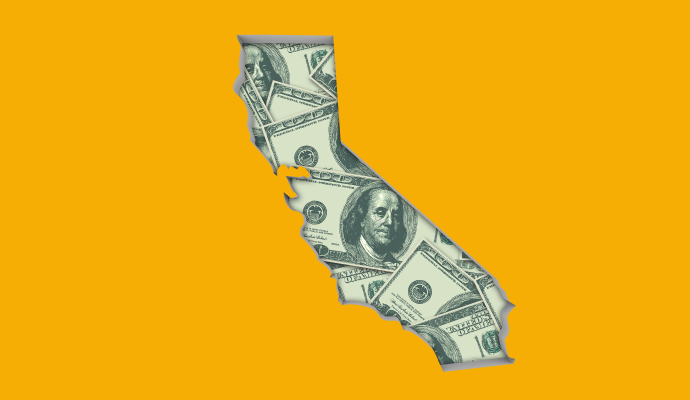Surprise Billing Price Controls Decreasing Care Quality in CA
A new report shows that California’s benchmark prices for surprise billing narrowed provider networks and incented provider consolidation, two trends that threaten quality of care.

Source: Getty Images
- Researchers at the Pacific Research Institute are warning Congressmembers to steer clear from price controls as a solution for surprise billing after finding that the policy approach had unintended consequences in California.
In a new brief, researchers found that California’s surprise billing solution – which imposes benchmark prices on out-of-network services delivered at an in-network facility – narrowed provider networks for patients and incented further provider consolidation in the state.
“California’s surprise medical billing law has created unintended consequences that are increasing healthcare costs and reducing quality,” stated the brief’s author Wayne Winegarden, PhD, director of PRI’s Center for Medical Economics and Innovation. “Price controls have led to fewer doctors on call in emergency rooms, and independent doctor practices consolidating into bigger hospitals. When government puts its thumb on the scale, it’s ultimately patients that are hurt the most.”
For three years, California’s Assembly Bill (AB) 72 has required that, if patients receive care at an in-network hospital or healthcare facility, then physicians must accept the average insurance reimbursement rate for the services based on their location or 125 percent of the Medicare rate.
The intent of the policy is to protect patients from surprise medical bills that are typically excessive in price.
READ MORE: Surprise Billing Action Needed, But Hospitals Urge Congress to Wait
Congress has proposed a similar approach on the national level to address the problem of surprise billing.
However, Winegarden’s review of surveys and studies conducted in the last three years suggested that the price controls actually incented lower quality healthcare services.
For example, two surveys conducted in 2019 by the California Medical Association and the RAND Corporation, respectively, showed that California physicians are now less willing to be on on-call lists and specialists are more reluctant to be on call during undesirable shifts (e.g. weekends, holidays, nights).
Additionally, the California Medical Association found that most physician practices interviewed for the survey said the new law created contracting difficulties (94 percent), reduced the size of physician networks (88 percent), and created new access issues for patients (62 percent).
Patients seem to agree with access issues, according to Winegarden.
READ MORE: Physicians Hail New York’s Surprise Billing Law as a Success
California Department of Managed Health Care data from the last three years revealed a spike in access to care complaints, Winegarden reported. The brief’s author described the spikes as “unprecedented in size” and, considering the time period, suggested a correlation with the state’s implementation of the surprise billing law.
Winegarden warned that these quality issues could also result in excessive healthcare prices for patients.
Price controls in AB 72 encourage provider consolidation among small physician practices because the law upsets the balance of power in negotiations between payers and providers, the brief stated.
Smaller practices are disadvantaged in these negotiations because payers can always fall back on the benchmark price of 125 percent of Medicare rates. Practices may find it effective to consolidate with other providers or a hospital to increase their negotiating leverage.
While an effective means for rebalancing negotiation power, research has demonstrated that provider consolidation also increases healthcare prices for patients.
READ MORE: 1 in 7 In-Network Admissions End with Surprise Medical Bill
“California’s surprise medical billing law should serve as a warning for Congress and other states – the negative impacts from this law are just beginning and will likely worsen the quality and availability of care in the coming years,” said Winegarden. “But by embracing free market reforms to increase transparency, we can address the surprise billing problem and improve health care efficiency, without incurring the large costs and harm to patients that come from government price controls.”
Truth-in-advertising requirements on payers and providers is an example of a free market reform that could address surprise billing, according to the brief.
Under truth-in-advertising requirements, payers and providers would be held accountable for the information they provide to consumers by an agreed-upon common sense definition of an in-network facility, which in this case would mean if all of a patient’s charges reflect the in-network rates, Winegarden explained.
“This reform would create protections for patients and empower fair negotiations between insurers, doctors, and healthcare facilities to determine each party’s appropriate compensation,” Winegarden wrote in the brief.
Congress members have indicated that a surprise billing solution could be part of an upcoming coronavirus relief package. Previous packages have already prohibited providers from sending surprise bills to COVID-19 patients.
Hospitals have staunchly opposed surprise billing solutions that employ price controls, instead advocating for policies that would implement an arbitration process to settle out-of-network charges.
Just last month, national hospital groups urged Congressional leaders to avoid price controls in future coronavirus relief packages. The groups argued that the financial consequences of such a policy would further undermine hospitals and frontline caregivers during the COVID-19 pandemic.
Price controls on out-of-network care similar to the benchmark set in California could reduce hospital revenues by $124 billion, according to a recent analysis from RAND Corporation.
